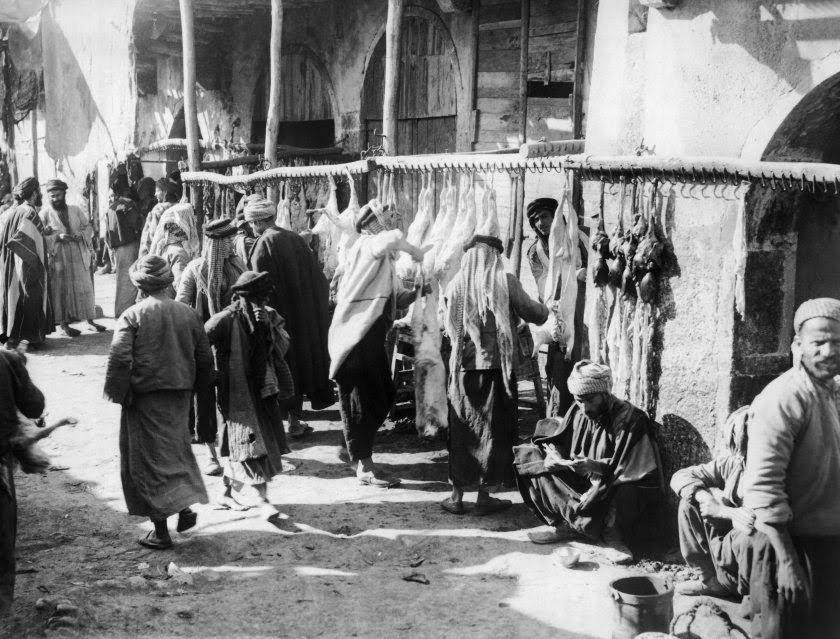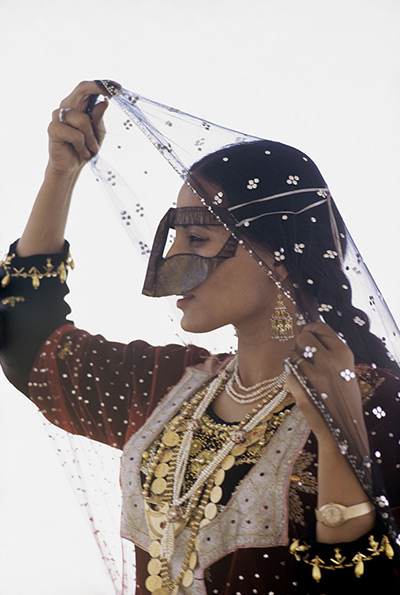To reduce the bitter taste of that last terribly sexist folktale (I think it's right to translate all of them, pleasant or not), here's a short, sweet Omani one that's not sexist at all. Arabic dialogue is signalled by a dash instead of quotation marks and I've left it as is.
The smart youth and the smarter girl
A
man travelled to a far country because of a job that he had to do, and when he
was finished with his job he decided to return to his country, where his wife
and his daughter were. On the return
trip he met a youth walking along the same road, and they met and became
friends.
After
a little while they met a peasant winnowing wheat (separating the grain from
the husk), and the youth asked the man:
-
Are these grains good or bad?
[And
the man replied:]
-
How can I know?
On the second day they passed by a flock of
sheep, and the boy asked the man:
-
Are there blessings in this flock or no?
And again the man did not know what to answer.
Another day, they saw a dead person whose family
was washing him, and the youth asked the man:
-
Is he alive or dead?
The
question astonished the man, and he believed the youth must be crazy. And they continued in their journey until
finally they arrived at their country.
The
youth asked the man:
-
Where will you sleep?
[And the man replied:]
-
In my house of course, for I have a wife and a
daughter.
[The youth said:]
-
As for me, I will sleep in a house larger than yours;
indeed it is the largest house in the country.
They split up, and when the man arrived at his
house, his wife and his daughter welcomed him, and then his daughter asked him:
-
Did you come alone?
[And the man replied:]
-
There was a youth with me, I think he was crazy.
-
Why do you think that? [She asked.]
-
Because he was asking strange questions, [he
replied.]
-
What questions?
-
We passed by a man winnowing wheat and he asked
me whether the grains were good or bad.
-
Grains are good when their owners are not in
debt, and bad if their owners accept their price before they grow [she said].
-
Then what do you say, daughter, to this: we passed by a dead man whom they were
washing and the youth asked me: is he alive or dead?
-
He meant that if the dead man had sons, then he is
alive, and if he was barren, then he is dead.
-
Good, what do you say to this: we passed by a
flock of sheep and the youth asked me: Are there blessings in this flock or
not?
-
If there was a ram in the flock then it is
blessed, for it will increase, and if not then there is no blessing in it.
The girl prepared thirty loaves of bread and a
bowl of fat, and her father asked her:
-
Who is this for?!
-
For the youth who was with you.
-
Do you know where he is right now?
-
In the masjid.
-
How did you know?
-
Didn’t you tell me that he was going to stay in
the largest house in the country, and is there a larger house than the house of
Allah the Almighty?
Then she turned to her servant and said:
-
Say to the youth that there are thirty days in
the month and the ocean is full.
In the road, the servant met a poor man and gave
him a loaf and some fat, then she continued until she arrived to the youth in
the masjid and gave him bread and fat and a message from her lady:
-
My lady says to you: there are thirty days in
the month and the ocean is full.
-
Say to your lady that there are twenty-nine days
in the month, and the ocean is less by a wave, and do not hold the daughter of
the people to account. [Which means, do not punish your servant, for what she
did was good].
From ‘Stories from the Omani Tradition’ by Yusuf
ash-Sharouni (1987)







